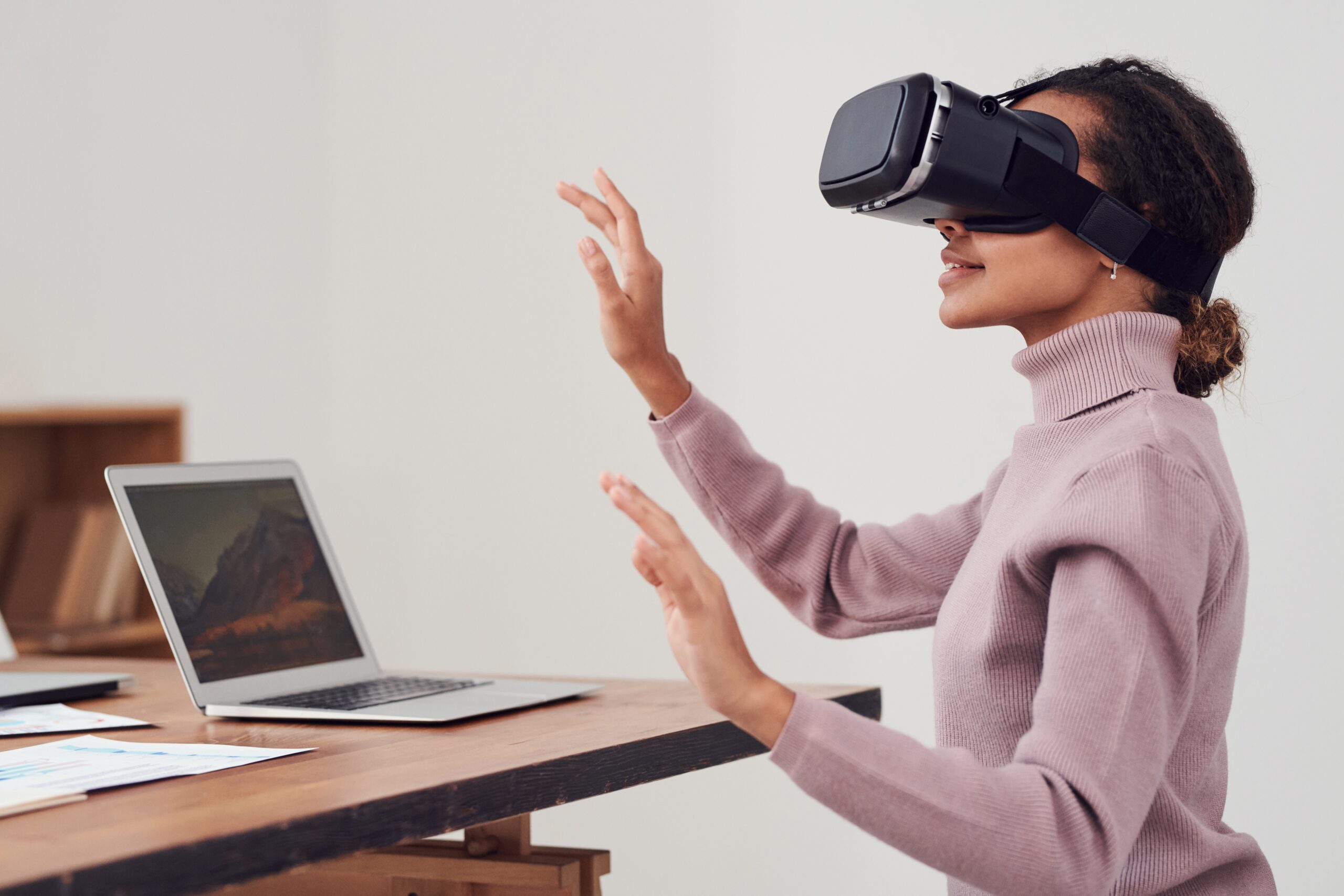Is Virtual Reality The Future? Exploring the Potential and Impact
Introduction
The rapid advancement of technology has continually reshaped our world, and the emergence of virtual reality (VR) has sparked significant interest and debate. In this article, we’ll delve deep into the question: Is Virtual Reality The Future? As we journey through the potential and impact of VR, we’ll explore its applications in diverse fields, the challenges it faces, and how it might transform our lives.
Is Virtual Reality The Future?
Virtual Reality, often abbreviated as VR, refers to a simulated environment that can be explored through a computer-generated experience. As the lines between the real and virtual worlds blur, it’s natural to wonder if VR is destined to become an integral part of our future. With its immersive and interactive nature, VR holds the promise of revolutionizing industries and altering the way we interact with technology.
Exploring the Potential of VR
1. Enhancing Entertainment and Gaming
The gaming industry has been quick to embrace VR, offering players an unprecedented level of immersion. Titles like “Half-Life: Alyx” and “Beat Saber” showcase how VR can transport players into captivating virtual worlds, creating a more engaging and dynamic gaming experience.
2. Transforming Education and Training
Imagine learning complex subjects by diving into a VR simulation. From medical procedures to architectural design, VR can provide students and professionals with hands-on training in a risk-free environment. This has the potential to bridge the gap between theoretical knowledge and practical application.
3. Revolutionizing Healthcare
In the medical field, VR has proven its potential for pain management, exposure therapy, and even surgical training. Patients undergoing treatments can find solace in immersive environments, reducing anxiety and discomfort.
4. Virtual Tourism and Exploration
With VR, individuals can explore far-off destinations and historical sites from the comfort of their homes. This opens up new possibilities for virtual tourism, making travel experiences accessible to a broader audience.
5. Empowering Collaboration and Communication
VR’s ability to connect people across distances could revolutionize remote work and collaboration. Virtual meetings and conferences could become more engaging and lifelike, enhancing communication among teams separated by geographical boundaries.
The Impact of VR on Industries
1. Entertainment and Media
The entertainment industry has seen a significant shift with the integration of VR. From virtual concerts to interactive storytelling, creators are finding innovative ways to captivate audiences.
2. Healthcare and Medicine
VR is transforming patient experiences, aiding in rehabilitation, mental health therapy, and medical training. Surgeons can rehearse complex procedures in a virtual environment, leading to improved surgical outcomes.
3. Education and Training
Incorporating VR into education can make learning more engaging and effective. Complex concepts can be visualized, making subjects like science and mathematics more approachable for students.
4. Real Estate and Architecture
Prospective buyers can take virtual tours of properties, saving time and resources. Architects and designers can create virtual walkthroughs to better communicate their visions to clients.
5. Aerospace and Engineering
VR is utilized for simulating flight scenarios and testing engineering prototypes. This technology aids in designing safer and more efficient aircraft and spacecraft.
Challenges and Considerations
While the future of VR looks promising, there are challenges that need to be addressed. Issues such as motion sickness, hardware costs, and the need for improved content quality must be overcome for VR to reach its full potential.
To know more about technology news.
Conclusion
Concluding our exploration into the world of virtual reality, it’s evident that its potential to reshape various sectors knows no bounds. This revolutionary force transcends conventional limits, making waves in realms like entertainment, education, healthcare, and collaboration. In this landscape, TechnoDigitals, our esteemed guest bloggers specializing in technology, emerges as a pioneering force. Their innovations amplify VR’s transformative power, leading the charge amidst challenges. As VR’s evolution surges forward, it solidifies its permanence, with entities like TechnoDigitals crafting a future where reality and the digital meld. The hands of technology and visionaries like TechnoDigitals are sculpting a new era of human engagement and comprehension, where the lines between reality and the digital blur into a new dimension.
FAQs about the Future of Virtual Reality
Q: Can VR be used for more than just entertainment?
A: Absolutely. VR has applications in education, healthcare, training, and various industries beyond entertainment.
Q: Is VR accessible to everyone?
A: While VR has become more accessible, factors like cost, hardware requirements, and technical expertise can still limit its reach.
Q: Will VR replace traditional forms of education?
A: VR has the potential to enhance traditional education, but it’s unlikely to entirely replace traditional learning methods.
Q: Are there any ethical concerns with VR?
A: Ethical concerns include issues of privacy, addiction, and the potential impact of prolonged exposure to virtual environments.
Q: What industries are at the forefront of VR adoption?
A: Gaming, healthcare, and education are among the industries leading the charge in adopting and utilizing VR technology.
Q: What does the future hold for VR technology?
A: The future of VR is exciting, with advancements in hardware, content creation, and accessibility expected to drive its growth.






